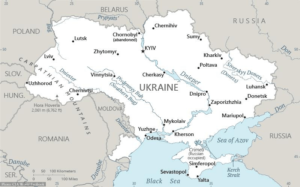The Conviction of Ex-Guinean Leader Moussa Dadis Camara: A Landmark Verdict
The recent conviction of former Guinean leader Moussa Dadis Camara for crimes against humanity marks a significant milestone in the pursuit of justice for the victims of the 2009 massacre in Conakry. Camara, who led Guinea during a turbulent period, was found guilty of orchestrating one of the most brutal crackdowns in the nation’s history. This essay delves into the background of the 2009 massacre, the trial and conviction of Camara, and the broader implications of this landmark verdict.

Background of the 2009 Massacre
On September 28, 2009, thousands of pro-democracy demonstrators gathered at a stadium in Conakry, Guinea’s capital, to protest against Camara’s potential candidacy in the upcoming presidential elections. The peaceful rally turned into a bloodbath when security forces, including members of Camara’s presidential guard, opened fire on the crowd. According to a United Nations-mandated commission of inquiry, at least 156 people were killed, and 109 women were raped during the massacre. The brutality of the attack shocked the international community and highlighted the severe human rights abuses under Camara’s regime.
The Trial and Conviction
After years of advocacy by survivors and human rights organizations, the trial of Moussa Dadis Camara and several other high-ranking officials began in 2022. The charges against them included murder, rape, torture, and kidnapping, all reclassified as crimes against humanity. The trial saw over 100 survivors and victims’ relatives testify, recounting the horrors they endured during the massacre.
On July 31, 2024, Guinea’s criminal court found Camara guilty and sentenced him to 20 years in prison. The court also convicted seven other military commanders, while four defendants were acquitted. The verdict was hailed as a significant step towards justice, with many victims’ families expressing relief that their long wait for accountability had finally ended.
Reactions and Implications
The conviction of Camara has elicited a range of reactions. Human rights organizations have welcomed the verdict, viewing it as a powerful message against impunity. Tamara Aburamadan, an international justice legal counsel at Human Rights Watch, stated that the judgment puts high-level perpetrators on notice that justice can prevail.
However, some victims’ families feel that the 20-year sentence is insufficient given the gravity of the crimes. They argue that the punishment does not fully reflect the suffering endured by the victims and their families. Despite these concerns, the conviction is seen as a landmark moment in Guinea’s history, demonstrating the country’s commitment to addressing past atrocities.
Broader Regional Impact
The conviction of a former head of state for crimes against humanity is unprecedented in Guinea and has broader implications for the region. It sets a precedent for holding leaders accountable for human rights abuses, potentially influencing other countries with similar histories of impunity. The verdict may also encourage survivors of other atrocities to seek justice, knowing that accountability is possible.
The conviction of Moussa Dadis Camara for the 2009 massacre in Conakry represents a significant victory for justice and human rights. While the sentence may not fully satisfy all victims’ families, the trial and verdict underscore the importance of accountability and the rule of law. This landmark case serves as a reminder that even those in positions of power can be held responsible for their actions, offering hope to victims of human rights abuses worldwide.










